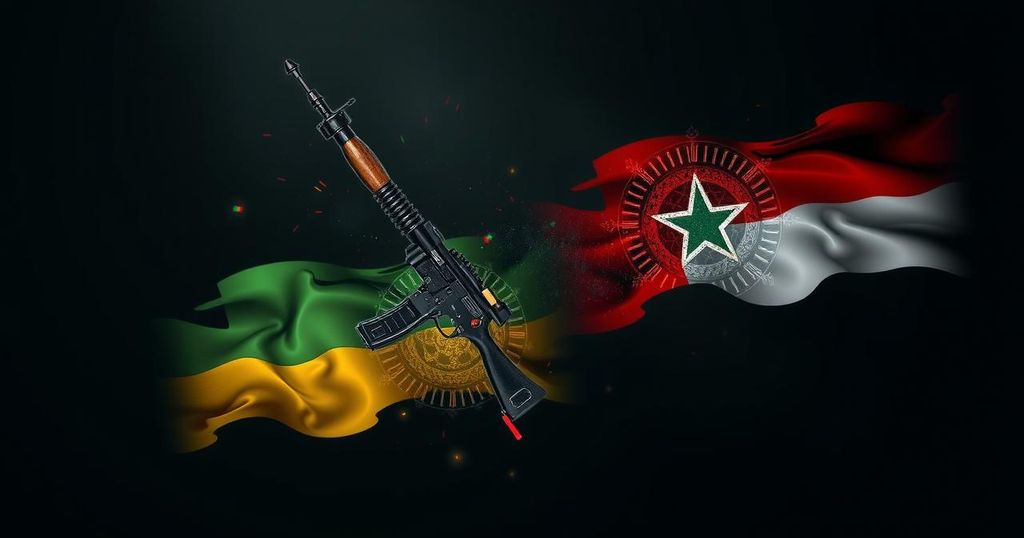Chad has denied accusations of supplying weapons to the RSF in the ongoing Sudan conflict, which has caused numerous fatalities and widespread humanitarian crises. Foreign Minister Abderaman Koulamallah emphasized Chad’s focus on peace and humanitarian aid, while Sudanese officials charge Chad with military facilitation, an allegation both they and the UAE have denied.
On Thursday, the Chadian government firmly rejected allegations that it has been contributing to the conflict in Sudan by supplying arms to the paramilitary group known as the Rapid Support Forces (RSF). The ongoing warfare, which has escalated since April 2023, has pitted the Sudanese army against the RSF, leading to unprecedented fatalities and widespread suffering among the civilian population. Chad’s denial follows accusations from Minni Minnawi, the Governor of Darfur, who publicly claimed that the Chadian government was facilitating military supplies to the RSF, a claim he voiced during an interview with Radio France Internationale (RFI). Minnawi urged France to intervene by halting the alleged transshipment of military equipment through Chad intended for RSF-controlled territories in Sudan. In contrast, Chad’s Foreign Minister, Abderaman Koulamallah, underscored the nation’s commitment to neutrality, asserting that “Chad has no interest in amplifying the war in Sudan by supplying weapons.” He highlighted the significant impact this conflict has had on Chad itself, citing the country’s responsibility of accommodating approximately 680,000 Sudanese refugees—more than any other nation in the region. Furthermore, Koulamallah reiterated, “We do not support any of the factions that are fighting on Sudanese territory — we are in favour of peace.” Past allegations suggested that Chad played a role in the transit of arms from the United Arab Emirates into Sudan, although both Chad and the UAE denied these claims. These allegations were further magnified by a report from the Sudan Conflict Observatory, funded by the U.S. Department of State, which claimed that the UAE had enabled the transfer of arms to the RSF via Chad. Minnawi, emphasizing the purported scale of military provisions passing through Chad, stated, “There are always very large quantities of military equipment that cross Chad to Sudan,” pinpointing various routes, including several Chadian airports and the port of Douala in Cameroon, ultimately linking back to the border crossing in Adre.
The conflict in Sudan began escalating dramatically in April 2023, resulting in a bloody war between the Sudanese army, led by de facto ruler Abdel Fattah al-Burhan, and the Rapid Support Forces (RSF), commanded by Mohamed Hamdan Daglo. This turmoil, characterized by extensive violence, has led to severe humanitarian consequences, with thousands dead and millions facing acute food insecurity. Chad, which shares a border with Sudan, has been significantly affected by this conflict as it has received a substantial influx of refugees fleeing the violence. As a result, Chad has positioned itself as a nation seeking peace while grappling with its own challenges amidst accusations from Sudanese officials about its involvement in the conflict.
In conclusion, the Chadian government has categorically denied accusations of supplying arms to the RSF amid an escalating conflict in Sudan that has resulted in catastrophic human suffering. Chad emphasizes its focus on humanitarian assistance and peace, rejecting any involvement in military facilitation. The ongoing strife has intensified calls from regional authorities for transparency and accountability in the dealings between neighboring countries and armed factions.
Original Source: www.newarab.com






